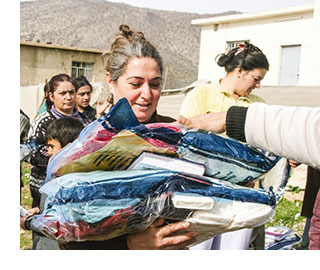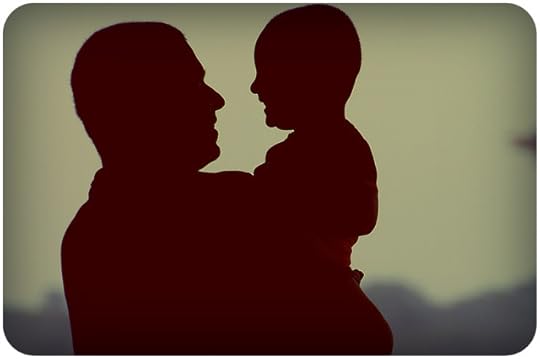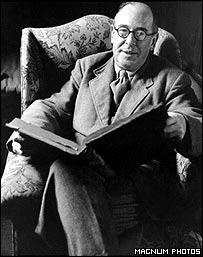Randy Alcorn's Blog, page 179
June 20, 2014
The Least of These: Refugees
 Today, June 20, is World Refugee Day. If you’re like me, maybe you’ve never heard of it before. For those of us in the Western world, the idea of being a refugee—of being forced to flee your home under threat of persecution, conflict, and violence—is unthinkable.
Today, June 20, is World Refugee Day. If you’re like me, maybe you’ve never heard of it before. For those of us in the Western world, the idea of being a refugee—of being forced to flee your home under threat of persecution, conflict, and violence—is unthinkable.
But for millions of people around the world, this is reality. The UN Refugee Agency reports that there are over 43.7 million refugees and internally displaced people around the world.
Imagine having no home… no security… no privacy… no way to adequately feed, shelter and educate your children. Get a glimpse into a Syrian refugee camp in this video from Samaritan’s Purse:
Over the last week as I watched the news coverage of events in Iraq, my thoughts and prayers turned to a segment of that country’s population not often mentioned in the news – Iraqi Christians.
Open Doors USA reports:
In the past several days, hundreds of Iraqi Christians have been forced to flee from their homes. Islamic extremists have taken over the northern part of the country, where the few remaining Christians live.
In 2003, there were a million Christians in Iraq—today there are less than 345,000... and hundreds more have been forced to flee due to the violence. The rising influence of radical Islam has accounted for increased attacks specifically against Christians. These Iraqi believers are joining the ranks of countless other Christian refugees from countries like Central African Republic, Syria and North Korea.
Christianity Today quotes the vicar of St. George's Anglican Church in Baghdad, who recently wrote, "Things are so bad now in Iraq, the worst they have ever been.”
So much tragedy… so much pain, in Iraq and Syria and in so many places around the world.
How, as a believer in Christ, can you help?
1. Support ministries that reach out to refugees.
Below are some organizations EPM recommends:
Open Doors USA is working with refugees from Iraq, Syria and other countries to support their physical, emotional and spiritual needs
Samaritan’s Purse is providing emergency food and other supplies as refugees fleeing the conflict in Syria are pouring into northern Iraq, Jordan, Lebanon, and Turkey. They also support local ministry partners throughout the region as they provide physical relief in Jesus' name to suffering people.
World Relief is on the ground in South Sudan working with families internally displaced by the current violence.
2. Get your family personally involved through a hands-on project.
 Voice of the Martyrs offers a great opportunity to provide much-needed items for Syrian refugees by filling an Outreach Pack with things such as clothing, bedding, and toiletries. You can also sponsor a pack to be filled and distributed. My family is going to be filling a pack this month and I encourage you to consider doing so as well, as a great way to get your children involved in tangibly helping refugees!
Voice of the Martyrs offers a great opportunity to provide much-needed items for Syrian refugees by filling an Outreach Pack with things such as clothing, bedding, and toiletries. You can also sponsor a pack to be filled and distributed. My family is going to be filling a pack this month and I encourage you to consider doing so as well, as a great way to get your children involved in tangibly helping refugees!
3. Pray for refugees around the world.
Randy writes, “There is no greater ministry, no higher calling, no better investment than prayer.”
Pray that Christian refugees will know and experience the peace of Christ. Pray they will sense the presence of the Lord so strongly that it will minimize their physical suffering.
Pray for the ministries on the ground reaching out in Jesus’ name.
Pray that refugees who don’t know Christ will be drawn to Him.
Pray for peace in parts of the world where conflict has displaced innocent people.
And the King will answer them, "Truly, I say to you, as you did it to one of the least of these my brothers, you did it to me” (Matthew 25:40).
When a stranger sojourns with you in your land, you shall not do him wrong (Leviticus 19:33).
Learn to do good; seek justice, correct oppression; bring justice to the fatherless, plead the widow’s cause (Isaiah 1:17).
Stephanie Anderson
Eternal Perspective Ministries
child photo credit: Mustafa Khayat via photopin cc | Outreach pack photo credit: Voice of the Martyrs
June 18, 2014
Abortion Too Controversial to Address in Church? (Plus Information on the Oregon 2014 Citizen Initiative with an Urgent Deadline of June 30)
 When talking with Christian leaders about the issue of abortion, I emphasize that we will be held accountable, both in this life and in eternity, for how we deal with this issue. We must take deliberate and significant measures to stop the killing, to minister to our hurting women, and to make a difference in our community. The desire to be popular and avoid people’s disapproval is a common reason for Christian leaders to hold back in pro-life efforts. But for every reason we have, we must be ready to answer a question on the last day: “Was that reason more important than the lives of all those children I created in my image?”
When talking with Christian leaders about the issue of abortion, I emphasize that we will be held accountable, both in this life and in eternity, for how we deal with this issue. We must take deliberate and significant measures to stop the killing, to minister to our hurting women, and to make a difference in our community. The desire to be popular and avoid people’s disapproval is a common reason for Christian leaders to hold back in pro-life efforts. But for every reason we have, we must be ready to answer a question on the last day: “Was that reason more important than the lives of all those children I created in my image?”
Pastors and leaders must not hold back from speaking the truth just because there is no consensus about abortion in our church. It is our job, given to us by God, to teach and minister in such a way as to create that consensus. But if consensus never comes—and it may come only with great difficulty—our job is still to teach the truth.
In this video, I discuss the issue of whether or not abortion is too controversial to address from the pulpit:
I mentioned the Oregon 2014 Initiative, www.oregon2014.org. Below is a timely message for those of you who live in Oregon:
Most people have no idea that our Oregon tax dollars are funding the deaths of 4,000 pre-born babies this year. These are elective abortions performed on HEALTHY BABIES up to six months gestation, no questions asked, for any reason. Here are two things you can do to help:
1. Go to WWW.OREGON2014.ORG/SIGN/ to print, sign and mail this urgent petition to place this measure onto Oregon’s 2014 ballot so we can vote YES to stop this tax-payer funding of abortion. (You will have instant access to a PDF of the petition — there's no need to give anyone your email address or other personal info.) I signed the petition, and encourage you to do this, too. It will require very little time and the cost of one stamp.
2. Do what you can to help spread the word in Oregon. Your friends and family need to know they are contributing to thousands of elective abortions, whether they are "pro-life" or "pro-choice."
This is a rare opportunity for Oregon voters and I believe it’s worth your time. Quite a few more signatures are still needed, and petitions must be postmarked by June 30.

Each blog regularly appears on my Facebook page where people often comment on it. If you’d like to comment or see others’ comments, we invite you to join us there.
June 16, 2014
Surrendering to God’s Wisdom
 When I need a point-of-view adjustment, I read the last five chapters of Job. That’s where the focus shifts from Job’s questions about his suffering—and his friends’ proposed answers—to God’s majesty. Job had a better basis for complaint than nearly any of us ever will. Yet after listening to Job’s grievances, God finally speaks to him: “Brace yourself like a man; I will question you, and you shall answer me” (Job 38:3).
When I need a point-of-view adjustment, I read the last five chapters of Job. That’s where the focus shifts from Job’s questions about his suffering—and his friends’ proposed answers—to God’s majesty. Job had a better basis for complaint than nearly any of us ever will. Yet after listening to Job’s grievances, God finally speaks to him: “Brace yourself like a man; I will question you, and you shall answer me” (Job 38:3).
God is saying, “You are unhappy with me, Job. You have questioned me. You assume you know far more than you do. Now it’s my turn to ask you some questions.” God never faults Job for being finite, only for failing to recognize that he has no right to pass judgment on the wisdom and goodness of an infinite Creator.
“Where were you when I laid the earth’s foundation? Tell me, if you understand. Who marked off its dimensions? Surely you know!” (verses 4–5).
God has always been; Job just showed up. In Hebrew culture, wisdom came with old age. God is eternally old, Job ridiculously young.
God says, “Tell me, if you understand.” Job doesn’t and can’t.
We lack God’s omniscience, omnipotence, wisdom, holiness, justice, and goodness. If we insist we have the right, or even assume we have the capacity, to understand the hidden purposes of God, we forfeit the comfort and perspective we could have had in kneeling before his vastly superior wisdom.
While this doesn’t answer the question of evil and suffering, it does suggest God’s answer is beyond our understanding. One day we’ll know far better than now; but even in eternity, God will still be infinite, and we’ll still be finite.
Job finally says to God, “Surely I spoke of things I did not understand, things too wonderful for me to know.… My ears had heard of you but now my eyes have seen you. Therefore I despise myself and repent in dust and ashes” (42:3, 5–6).
Charles Spurgeon stated, “He who demands a reason from God is not in a fit state to receive one.” It is when Job surrenders himself to God that he at last, at the end of himself, finds comfort.
Father, thank you for both inviting us to ask questions and instructing us to listen carefully to your answers. Help us rely on you even when we don’t understand. As a loving Father, you want us to trust you rather than blame and resent you. After all you’ve done for us as Creator and Redeemer, how could we do less?

Each blog regularly appears on my Facebook page where people often comment on it. If you’d like to comment or see others’ comments, we invite you to join us there.
photo credit: James Wheeler
June 13, 2014
A Father’s Role as Image Bearer
 Now obey my voice; I will give you advice, and God be with you! You shall represent the people before God and bring their cases to God, and you shall warn them about the statutes and the laws, and make them know the way in which they must walk and what they must do. Exodus 18:19-20 (ESV)
Now obey my voice; I will give you advice, and God be with you! You shall represent the people before God and bring their cases to God, and you shall warn them about the statutes and the laws, and make them know the way in which they must walk and what they must do. Exodus 18:19-20 (ESV)
God did not create human fathers, realize they were like Him, and decide to call Himself our Father. On the contrary, He created marriage and family to communicate not only Christ’s love for His church, but also the Father and Son’s love for each other.
When a child looks at His earthly father, He should be able to see the qualities of God. Though an earthly father is flawed, His likeness to the Father should be enough to instill in a child the proper fear and love for God. It is part of our nature to judge what we cannot see in light of what we can.
Consider how a child thinks: If my father loves and cares for me, then God loves and cares for me. If my father means what he says, then God means what He says. If my father would die for me, God would die for me.
On the other hand, if their earthly father is harsh or distant, then what will children think when someone says “God is your Father”? Based on what they know of a father, how will they view God?
Some readers of this blog are not fathers, but are mentors of boys or girls. Every parent needs to look for godly mentors to reinforce the training of their children. If you don’t look for the right mentors, your children may find themselves drawn to ungodly, influential people.
When I was in eighth grade I had a football coach who was tough, but kind. When school photos came out, he signed one for me that said “To my favorite ball player.”
I must have reread that sentence a thousand times over the next five years. I can still see every stroke of every letter in my mind’s eye. I can’t tell you what his spiritual beliefs were. But I can tell you that if he had shared them with me I would have listened to every word he said.

Each blog regularly appears on my Facebook page where people often comment on it. If you’d like to comment or see others’ comments, we invite you to join us there.
photo credit: absolut xman via photopin cc / Color filter and rounded edges added from original
June 11, 2014
Are You Encouraging Your Kids to Read This Summer?
I’ve shared before my concern that children who don't grow up to be readers will not be readers of God's Word. In today’s culture, addiction to video games, movies, TV and social media has drained many young people of the time and interest to discover the virtues and satisfaction of reading. But there’s nothing like reading to feed the soul and enlarge the imagination.
In light of that, I’d like to encourage parents and grandparents to find ways to get kids reading this summer. (A great way to do that is leading by example! Set aside an hour that’s family reading time, where everyone can read on their own or to each other—but no TV, iPad, computer, video games, phone, etc. Nothing electronic unless you’re reading an e-book!)
Also, check out this blog post from Desiring God with 25 ways to help kids love to read.
Speaking of kids reading, I was delighted that Ann Voskamp shared this on her blog:

So I’d left this book of Randy Alcorn’s out by the fireplace and Shalom picked it up. And didn’t put it down. It’s followed her around for days. She came to me and said: “This is the best book I have ever read.” Better than the Little House Prairie books? “Definitely. It explains heaven to me, Mom—it’s my new favourite book.”
Perfect Summer reading for kids: Randy Alcorn’s Heaven for Kids

Well, thank you for those sweet words, Shalom! I am SO glad you like Heaven for Kids! And thank you, Ann, for posting these beautiful photos and the comments about the book.
Please, anyone, I invite you to share (on my Facebook page) any recommendations for summer reading for kids!

Each blog regularly appears on my Facebook page where people often comment on it. If you’d like to comment or see others’ comments, we invite you to join us there.
Photo credits: Ann Voskamp
June 9, 2014
An Eternal Perspective: An Interview with Tabletalk Magazine
 The following interview originally appeared in the September 2013 issue of Tabletalk Magazine, a publication of Ligonier Ministries.
The following interview originally appeared in the September 2013 issue of Tabletalk Magazine, a publication of Ligonier Ministries.
Tabletalk: How did you become a Christian, and how did you receive the call to ministry?
Randy Alcorn: I grew up without Christ and without the church. When I was in high school, I attended a church to see a girl I’d met. But God can use even our wrong motives for his right purposes. (In fact, that girl became my wife years later.) After a few months of attending, I was reading the Bible regularly. One day I realized I believed what it said about Jesus. I dropped to my knees, confessed my sins, and gave my life to Christ. I have never once regretted it.
By the time I’d known the Lord two years, I knew I wanted to go to Bible college and seminary to study God’s Word. At first, I wanted to be a missionary, but then we started a church that I was asked to help pastor. I was a pastor until 1990, and I’m still part of the same church. I love it and I’m grateful.
TT: Please describe the events that led to your earning only minimum wage and giving away 100 percent of your book royalties.
RA: In 1990 I was a pastor of a large church. I was also on the board of a crisis pregnancy center, and we’d opened our home to a pregnant teenager and helped place her child for adoption. My burden for the unborn grew, and I participated in peaceful, nonviolent rescues at abortion clinics. For this I was arrested and sent to jail. An abortion clinic won a court judgment against a group of us, and I discovered that my church was about to receive a writ of garnishment for my wages. To prevent the church from either having to pay the clinic or defy a court order, I resigned.
I’d already divested myself of book royalties. Fortunately, our family had been living on only a portion of my church salary, and we’d just made our final house payment. Another court judgment followed, involving another abortion clinic. They were awarded the largest judgment ever against a group of peaceful protestors: $8.2 million.
By all appearances our lives had taken a devastating turn, but it was one of the best things that ever happened to us. What they intended for evil, God intended for good. We began a nonprofit organization, Eternal Perspective Ministries (EPM). The only way I could avoid garnishment was to make no more than minimum wage. (I was also given some modest benefits, and my wife made a part-time secretary’s salary.) Royalties from my books go directly to EPM, which gives 100 percent of them to worthy Christian organizations as well as to help facilitate the giving away of my books to people all over the world. By God’s grace, we’ve given away more than $6 million to date.
TT: Given your experience suffering the legal consequences for protesting abortion, can you give us some advice on dealing with a culture that is increasingly hostile to Christianity?
RA: Jesus said, “‘A servant is not greater than his master.’ If they persecuted me, they will also persecute you” (John 15:20). Followers of Jesus should expect injustice and misrepresentation.
I’m grateful that there are organizations working to protect the rights of Christians. But I’m concerned that we shouldn’t view ourselves as one more special interest group, clinging to entitlements and whining when people don’t like us. God’s people have a long history of not being liked.
The fact is, while the gospel is good news, it is also insulting. Many people don’t like being called sinners and told they deserve to go to hell. Peter said, “Don’t be surprised at the fiery trial when it comes upon you to test you, as though something strange were happening to you” (1 Peter 4:12).
If our eyes are on anyone but Jesus, we’re not going to have the stamina to put up with criticism or outright hostility. Paul said, “If I were still trying to please man, I would not be a servant of Christ” (Gal. 1:10). Jesus is the Audience of One. We will stand before his judgment seat, no one else’s. We should long to hear him say, “Well done, good and faithful servant.” What other people think won’t matter.
TT: What are two or three simple, practical ways that Christians can combat abortion in the course of their “ordinary” day-to-day lives?
 RA: First, pray regularly for pro-life ministries, churches, mothers, and babies. If the darkness of child-killing is to be overcome, it will require spiritual warfare, fought with humble and persistent prayer (Eph. 6:10–20).
RA: First, pray regularly for pro-life ministries, churches, mothers, and babies. If the darkness of child-killing is to be overcome, it will require spiritual warfare, fought with humble and persistent prayer (Eph. 6:10–20).
Second, we can all give regular visibility to the issue of abortion in conversations and in places such as blogs and social media. Scripture says to speak up for those who cannot speak up for themselves (Prov. 31:8–9). It’s vitally important that we approach subjects such as abortion in a Christlike manner, full of grace and truth (see John 1:14).
Third, spearhead a pro-life ministry in your church, or find one in your area (visit www.care-net.org) and consider donating time, money, equipment, clothes, and professional skills.
If you’d like more ideas of ways to help the unborn and their mothers, I share a list on our site (www.epm.org/helpunborn).
TT: Aside from the lawsuit, has there been a defining moment in your ministry?
RA: As a young pastor, my mom was dying, and every day I would read to her the last two chapters of Revelation. Though I never heard it spoken about in my Bible college or seminary, I found compelling this picture of a resurrected world where people with real bodies will live in a redeemed culture forever centered on Christ. I began to look forward to seeing again in the new world my mother and my friends who had died. That was thirty years ago, and I have studied and written about heaven and the importance of an eternal perspective ever since.
TT: You write both fiction and non-fiction. What are the unique challenges in writing for each genre?
RA: Fiction and nonfiction are very different, of course, but certain things carry over—the need for painstaking research, engaging development, and clear language.
 For me, the toughest part about being a writer is working on the big books, the ones that take a couple of years, such as Money, Possessions & Eternity and If God Is Good. In writing my book Heaven, I had some very discouraging times where I stayed up half the night working and asked, “Lord, is this going to make a difference?” It’s something you have to accept by faith, trusting that a measurable result will come. Every time somebody writes to say their life was changed reading that book, I thank God for empowering me to persevere.
For me, the toughest part about being a writer is working on the big books, the ones that take a couple of years, such as Money, Possessions & Eternity and If God Is Good. In writing my book Heaven, I had some very discouraging times where I stayed up half the night working and asked, “Lord, is this going to make a difference?” It’s something you have to accept by faith, trusting that a measurable result will come. Every time somebody writes to say their life was changed reading that book, I thank God for empowering me to persevere.
When it comes to writing fiction, there’s a big debate about the degree to which explicitly spiritual content can be part of the story. Spiritual searching and matters of faith are a very real part of many people’s lives, and when they’re not, they should be. So, while sermons don’t work in novels, spiritual realities can be artfully woven into a credible storyline. But you have to earn the right by doing it skillfully.
TT: What authors and works would you read and re-read if you had a six-month sabbatical dedicated to nothing but reading? Why?
RA: A.W. Tozer’s The Knowledge of the Holy, C.S. Lewis’ Mere Christianity, Francis Schaeffer’s He is There and He is Not Silent, John Piper’s Desiring God, Jerry Bridges’ The Joy of Fearing God, and Wayne Grudem’s Systematic Theology, plus the full set of Spurgeon’s sermons. These are all books that have had a profound influence on my life.
TT: One focus of your ministry has been to encourage Christians to live with their hearts set on heaven. How can Christians develop this eternal perspective on their lives in the here and now?
RA: Many people imagine that we will remain disembodied spirits in the afterlife and that heaven won’t be a tangible, earthly place. They mistake the intermediate heaven, where we go when we die, for the eternal heaven, where we’ll live with Christ and each other as resurrected beings on a resurrected earth.
Often our ideas of heaven are based more on Platonism and Eastern mysticism than biblical Christianity, which is centered in the anticipation of God’s ultimate redemptive purpose—resurrected people living on a resurrected earth with the resurrected Jesus. There are Christians who would die rather than deny the resurrection, but they don’t understand what it means.
 TT: Is it possible for Christians to be “so heavenly minded that they are no earthly good”? Why or why not?
TT: Is it possible for Christians to be “so heavenly minded that they are no earthly good”? Why or why not?
RA: Many of us are so earthly minded we are of no heavenly or earthly good. As C.S. Lewis observed, “If you read history you will find that the Christians who did most for the present world were just those who thought most of the next…. It is since Christians have largely ceased to think of the other world that they have become so ineffective in this. Aim at Heaven and you will get earth ‘thrown in’: aim at earth and you will get neither.”

Each blog regularly appears on my Facebook page where people often comment on it. If you’d like to comment or see others’ comments, we invite you to join us there.
June 6, 2014
The Words We Long to Hear
 Jesus tells us that one day His faithful servants will hear their Master say, “Well done, good and faithful servant. You have been faithful over a little; I will set you over much. Enter into the joy of your master” (Matthew 25:23, ESV).
Jesus tells us that one day His faithful servants will hear their Master say, “Well done, good and faithful servant. You have been faithful over a little; I will set you over much. Enter into the joy of your master” (Matthew 25:23, ESV).
The idea of entering into the Master’s joy is a telling picture of Heaven. It’s not simply that being with the Master produces joy in us, though certainly it will. It’s that our Master himself is joyful. He takes joy in Himself, in His children, and in His creation. His joy is contagious. Heaven’s environment is pure joy. Joy will be the very air we breathe. The Lord is inexhaustible—therefore His joy is inexhaustible.
Think about those incredible words: “Well done, good and faithful servant. . . . Enter into the joy of your master.” Memorize those words. They are the words we long to hear, the words we were made to hear.
What changes do you need to initiate today so that you may one day hear those words from God?

Each blog regularly appears on my Facebook page where people often comment on it. If you’d like to comment or see others’ comments, we invite you to join us there.
June 4, 2014
Dr. Rosaria Butterfield on “You Are What—and How—You Read”
This is a powerful post by a sister in Christ, who is a former, in her words, “queer activist.” I encourage you to read it carefully and thoughtfully.
You Are What—and How—You Read
I just returned from a well-known (and well-heeled) Christian college, where roughly 100 demonstrators gathered on the chapel steps to protest my address on the grounds that my testimony was dangerous. Later that day, I sat down with these beloved students, to listen, to learn, and to grieve. Homosexuality is a sin, but so is homophobia; the snarled composition of our own sin and the sin of others weighs heavily on us all. I came away from that meeting realizing—again—how decisively our reading practices shape our worldview. This may seem a quirky observation, but I know too well the world these students inhabit. I recall its contours and crevices, risks and perils, reading lists and hermeneutical allegiances. You see, I'm culpable. The blood is on my hands. The world of LGBTQ activism on college campuses is the world that I helped create. I was unfaltering in fidelity: the umbrella of equality stretching to embrace my lesbian identity, and the world that emerged from it held salvific potential. I bet my life on it, and I lost.
Read the rest of Dr. Butterfield's article.

Each blog regularly appears on my Facebook page where people often comment on it. If you’d like to comment or see others’ comments, we invite you to join us there.
June 2, 2014
Why Denying the Guilt Associated with Abortion Will Never Work
 For decades women have been promised that their lives can be happy if they follow the counsel to “terminate your pregnancy,” the deceiver’s language for “kill your child.” Yet I’ve talked with countless women who years later still weep over their abortions.
For decades women have been promised that their lives can be happy if they follow the counsel to “terminate your pregnancy,” the deceiver’s language for “kill your child.” Yet I’ve talked with countless women who years later still weep over their abortions.
The adverse physical and psychological consequences of abortion are well documented, with higher levels of depression and suicide. Dozens of studies tie abortion to a rise in sexual dysfunction, aversion to sex, loss of intimacy, unexpected guilt and extramarital affairs, traumatic stress syndrome, personality fragmentation, grief responses, child abuse and neglect, and increase in alcohol and drug abuse. Numerous national and international abortion support groups exist to help women heal after getting the abortion they were told would bring them happiness.
That’s what makes a recent viral prochoice video all the more disturbing and deceptive. Emily Letts, a 25-year-old abortion counselor in New Jersey, chose to make and share a video about her own first-trimester surgical abortion, claiming that she feels “super good after having an abortion.” She told Philadelphia Magazine, “Women and men have been thirsting for something like this. You don’t have to feel guilty.”
Albert Mohler writes:
So Emily Letts set out to make a video of her own abortion in order to create “a positive abortion story” that would show the world that women seeking an abortion should feel no guilt. Over and over again, she suggests that she feels absolutely no guilt about terminating the life within her.
And make no mistake—guilt is her major focus. In her words: “I know there are women who feel great remorse. I have seen the tears. Grieving is an important part of a woman’s process, but what I really wanted to address in my video is guilt.”
Actually, what she wants to address is her argument that the guilt women feel in having an abortion is simply imposed upon them by society. “Our society breeds this guilt. We inhale it from all directions,” she asserted. “I didn’t feel bad,” she insists. Her purpose in her video is to eradicate the link between abortion and guilt. “I am thankful that I can share my story and inspire other women to stop the guilt.”
…If Emily Letts truly believes that there is no guilt rightly associated with abortion, she would not have to insist, over and over again, that she feels no guilt. When she tells of women who “feel guilty for not feeling guilty,” she testifies to the fact that they are moral creatures who cannot stop making moral judgments, especially about themselves, even when they insist there is no moral judgment to be made. And this must be especially true when a woman has sought to terminate the unborn life within her.
(I encourage you to read Mohler’s excellent article about Emily’s video in its entirety.)
It’s true that abortion may relieve a woman of some immediate stress and responsibility, but it often creates much more than it relieves. Ironically, those women who do not experience psychological consequences as a result of their abortion can maintain their mental health only through denial. By choosing not to acknowledge it, they escape the emotional trauma that invariably comes with realizing you’ve killed a baby. This is a tenuous situation, requiring a lifetime of running from reality. And reality has a way of pursuing and catching us. Sadly, many women will testify to the fact that it is much easier to have a doctor scrape a baby from a mother’s uterus than to scrape the child from the mother’s mind.
Emily would likely agree that millions of women and men, both in society and in the church, are suffering under the “guilt of abortion.” But what she fails to understand is that it’s counterproductive to try to eliminate guilt feelings without dealing with guilt’s cause. No matter how often someone says “you have nothing to feel guilty about” to someone who has sinned against God and others, his or her guilt feelings will remain. What these women and men need—and what you and I and Emily all need—is a permanent solution to our guilt problem, a solution based on reality, not pretense. The good news? The Bible offers that solution in the gospel of Jesus Christ.
No sin—including abortion—is beyond the reach of God’s grace. He has seen us at our worst and still loves us. There are no limits to His forgiving grace. And there is no freedom like the freedom of forgiveness.

Each blog regularly appears on my Facebook page where people often comment on it. If you’d like to comment or see others’ comments, we invite you to join us there.
May 30, 2014
Anticipating the Joy of Seeing God
 Ancient theologians spoke of the “Beatific Vision,” which meant “a happy-making sight.” The sight they spoke of was God Himself. Revelation 22:4 says of God’s servants in the new heavens and new earth, “they shall see his face.” This would be a shocking statement to anyone who understood the Old Testament emphasis on the transcendence and inapproachability of God.
Ancient theologians spoke of the “Beatific Vision,” which meant “a happy-making sight.” The sight they spoke of was God Himself. Revelation 22:4 says of God’s servants in the new heavens and new earth, “they shall see his face.” This would be a shocking statement to anyone who understood the Old Testament emphasis on the transcendence and inapproachability of God.
When he asked to see God’s glory, God said to Moses, “no one may see me and live.” The most God could do was to show Moses his “back,” because “my face must not be seen” (Exodus 33:18-23). The God who lives in unapproachable light became approachable in the person of Jesus (John 1:14). The God who is transcendent became immanent. People could look at Jesus and see God. But Revelation 22:4 appears to speak of actually seeing the face of God the Father.
To see God’s face, we must be fully righteous in Christ, untainted by sin, in the glory of our resurrected beings. “Blessed are the pure in heart for they will see God” (Matthew 5:8).
David said, “One thing I have asked from the Lord, that will I seek after; that I may dwell in the house of the Lord all the days of my life, to behold the beauty of the Lord, and to inquire in his temple” (Psalm 27:4). The new heavens and earth will provide the eternal answer to David’s prayer. There will be no temple there, because we will always have direct access to God.
The barriers between man and God will be gone forever. To look into God’s eyes will be to see what we’ve always longed to see the person we were made for. And we will see him in the place we were made for. Seeing Him will be seeing everything else for the first time. And we will discover that to see God will be our greatest joy, and life itself. Every other joy of heaven will be a derivative joy, flowing from our central relationship with God.
To see God will be to know him, and then to see ourselves, and all other people and events, through God’s eyes. We will spend eternity worshipping, exploring and serving our great God, seeing his breathtaking beauty in everything and everyone around us.

Each blog regularly appears on my Facebook page where people often comment on it. If you’d like to comment or see others’ comments, we invite you to join us there.
photo credit: BluePrince Architectural via photopin cc / rounded corners added from original







